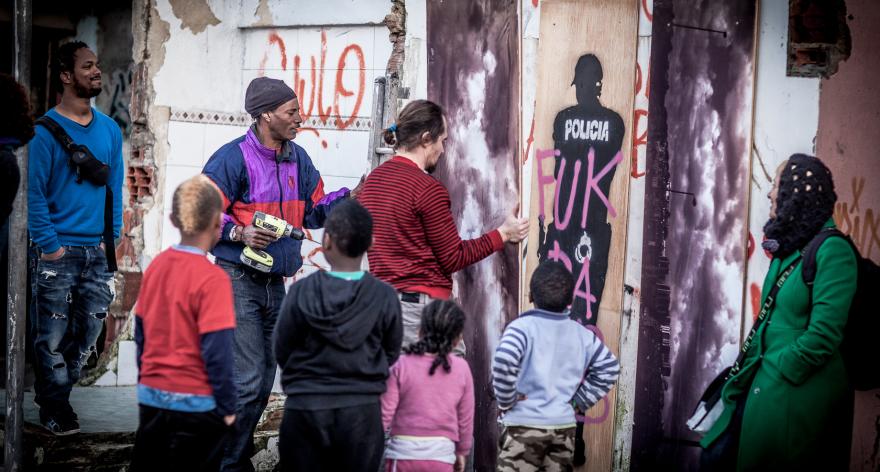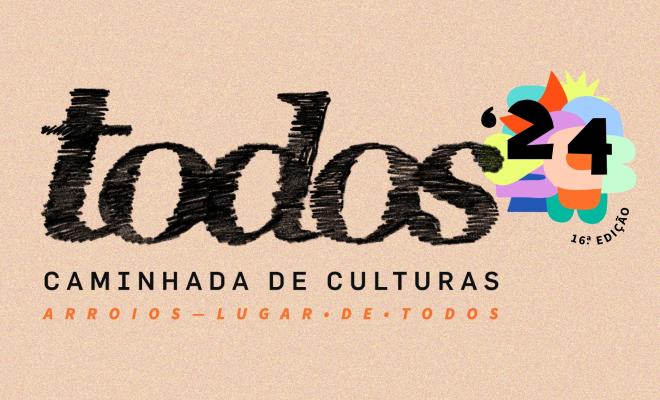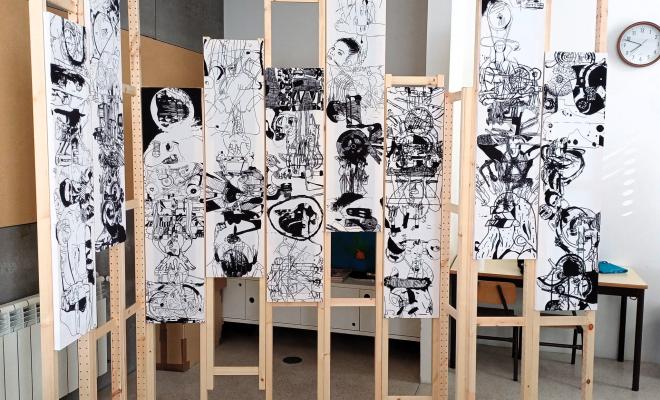
The 6 de Maio is a self-built neighbourhood located in Damaia, council of Amadora, close to Lisbon. Since its origins in the 1970s it houses a community of mostly Cape Verdean origins. Stigmatized for reasons of public disorder and drug trafficking, and targeted therefore by violent police interventions, the neighbourhood is a place of memory and identity for its residents. The 6 de Maio is being demolished and will be entirely dismantled by 2015, while its population is being relocated, according to a scheme of urban sanitation recently applied to other spontaneous urbanizations in the greater Lisbon area.
Based on research on the life in the neighbourhood, EBANOCollective created Ghetto Six, an ethnography-based art installation inspired by the life stories of the residents and by the contradictions and violence of postcolonial Portugal and Schengen Europe. It employs the remains of the houses that have already been demolished (doors, shelves, aluminium plates, wood, etc.) as supports for the inscription of a “portrait” of the neighbourhood itself, using mixed media including photography and painting. At the same time an experiment in visual ethnography and a tribute to the social life of a neighbourhood doomed to disappearance, Ghetto Six intends to evoke the instability but also of the creativity and aesthetics of a way of life.
The installation was moved to the 6 de Maio neighbourhood in early 2013, and will there remain indefinitely, becoming actual part of the built environment until the final destruction of the whole area. The remains will finally go back to their context of origin, transformed into visual elements of social critique within the urban space itself.
EBANOCollective is an artistic and curatorial collective that proposes to carry out site-specific projects and urban interventions through art supported by ethnographic research, and one of the members of Anna Lindh Foundation's Portuguese Network. Through the collaboration of artists and social scientists, EBANO develops participatory projects of public art tackling local community issues and larger social and urban questions.

